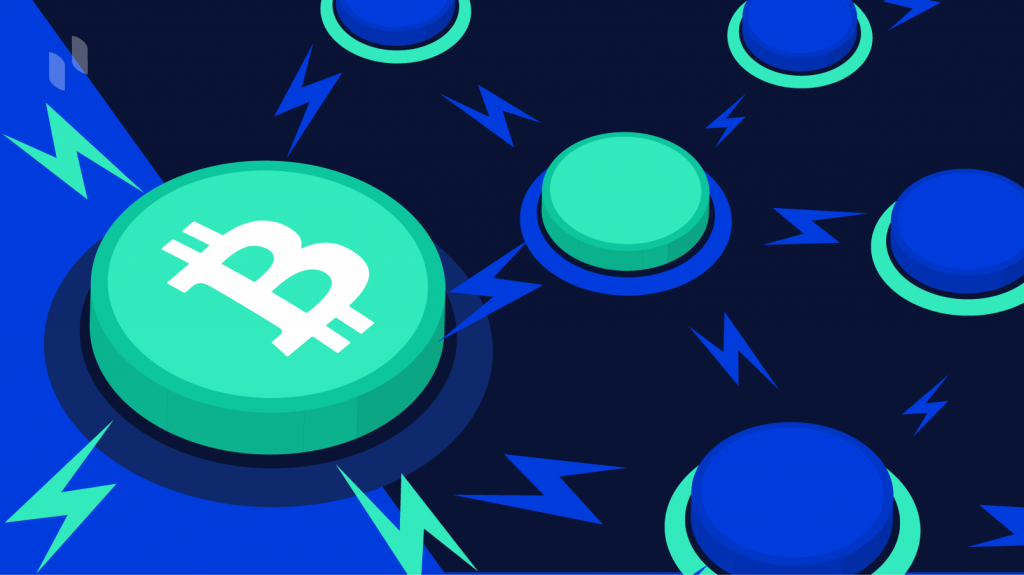Last week, Jack Mallers, the founder and CEO of Zap Solutions and Strike, a bitcoin payments company, posted a video showing a free and super instant (within 10 seconds) transfer of $10 from his U.S. bank account to the Bitnob account of Bernard Parah.
For many, the transaction may appear like any other financial payment on a fintech app. But the Bitcoin Lightning Network connecting Strike and Bitnob is a system that could disrupt and improve how money is transferred across the world.
How does the super-fast technology work? TechCabal caught up with Bitnob CEO, Parah, to find out.
Michael: How did you get involved in Bitcoin and what was your work experience before cryptocurrency?
Bernard: I first learned about Bitcoin in school. There wasn’t a lot of prior professional work before then. I had dropped out of the University of Abuja sometime in 2011 and in 2013, I moved to Ghana to study computer science. It was during this time, around October in my first year in school, that I got to know about Bitcoin.
As a student, I got a lot of freelance gigs and contract jobs with companies. So after my first year in school, I spent most of my spare time just coding and building things for companies in Ghana and around the world. I had a professional life that started in school and spent most of my time working than going to lectures. I only read seriously when it was a few weeks before exams.
At the time, I worked for the biggest PR agency in Ghana back then, Global Media Alliance, on a couple of platforms for influencer marketing. I worked for companies in the U.S. and Canada as well. I also ran technical stuff for a number of digital marketing agencies, which gave me a blend of marketing and software engineering.
I got back to Nigeria sometime in 2018 and started some work with my current co-founders while consulting for companies in Nigeria and abroad. It was mostly freelance and consulting before starting Bitnob in 2020.
Michael: So what led to the founding of Bitnob?
Bernard: I have a personal story with Bitcoin. In 2016, there was a CBN ban on the use of naira cards abroad. I had money in my bank account but couldn’t withdraw it in Ghana. The only way was to get someone who sent me Bitcoin and I exchanged that for Cedis. That event was a turning point – I couldn’t believe someone would give an order and my money was gone. Bitcoin made a lot more sense to me. It was money that could easily cross borders and I can always find someone in any country I’m in who’s willing to take my Bitcoin for cash. So it changed my perspective and I decided to dive deeper into Bitcoin.
Sometime in 2017, I quit my full-time job to fully focus on the space and then founded Bitnob with a colleague. We initially did over-the-counter transactions for people who wanted to buy large amounts of Bitcoin – $50,000, $100,000. We were the guys who could get it for you. Such amounts were not easy to come by on online platforms so we had to move around the streets of Accra, find people who had Bitcoin, gather them for sale. Then I realised this was going to be useful for a lot of people in the future and decided to build a career in this space.
Right now, we do more than just broker. Bitnob allows people to save and invest in Bitcoin and the whole process is automated. Instead of wondering when should you buy or sell Bitcoin, the app eliminates takes care of that using the dollar cost averaging technique. You can automate your savings to say, for instance, buy $10 worth of Bitcoin every week. Bitnob will handle the rest. We also offer loan services. If you have Bitcoin, we take that as collateral and give you a loan in naira. We’ve gone into payments across countries as well.
Michael: How many users does Bitnob currently have?
Bernard: We came out of private beta with less than 1,000 users. Today we have more than 11,500 users and that’s from January until now. So it’s been an exciting year. Bitnob is registered as a U.S. company and has no Nigerian office. We target the African market and diaspora, looking to connect both parties.

Michael: Tell me about the Lightning Network connecting Strike and Bitnob. How does the technology work?
Bernard: When you send Bitcoin on a blockchain, there’s a confirmation time. You have to wait for maybe ten minutes to receive the Bitcoin and probably wait another 10-20 minutes to actually confirm that the Bitcoin has arrived. In some instances when Bitcoin prices go really high, a lot of people complain that their transactions are getting stuck or taking too long. That’s because they pay network fees to miners who process their transactions. That’s what’s called the base layer or layer 1. You can think of it like a road where everyone moves and whenever there’s huge traffic, it gets choked and vehicles move much slower.
The Lightning Network is another layer, like flyovers that are built over the main road to help ease the traffic and get people moving faster. The network is built on the original layer. Like flyovers that are much faster and with less traffic, the Lightning Network does the same Bitcoin transactions but it is instantly settled, regardless of where you’re sending Bitcoin from. This is because it’s not moving on the Bitcoin blockchain itself. The Lightning Network is what we call the layer 2 technology – like a highway on top of a road for people to move faster.
In addition, the Lightning Network is an open system that anyone can plug into. You can simply set up a Lightning node and immediately have access to a global payments system that offers superior functionality to legacy platforms. So Strike was able to immediately connect to Bitnob’s node after linking with the Lightning Network.
Michael: Won’t there be delayed settlements if there are huge volumes of transactions on the Network?
Bernard: By design, the Lightning Network is supposed to ease transactions from the main Bitcoin blockchain. Transactions can never get too much because what causes traffic on the Bitcoin blockchain is the fact that it uses blocks. In a block, you have a certain number of transactions which take around 19 to 20 minutes for confirmation. Within those minutes when several people are doing a lot of transactions, it piles up and the Bitcoin itself processes around seven transactions per second. But by design, the Lightning Network can process more than one million per second. So it eases the traffic to a significant extent and it never gets crowded because the transactions are settled instantly. There’s no wait time.
Michael: What informed the integration with Strike?
Bernard: Chad and I both share similar visions of a world where you’re not restricted to do your transactions. A system that’s open, unlike traditional networks which only a few people can access, there’s a lot of permissions and fees needed because of the several intermediaries involved. As Africans, we’ve been on the receiving end of it. We’re the ones who haven’t really enjoyed this system.
The interesting thing about Bitcoin and the Lightning Network is that they’re open. If two entities become nodes on the network, they become interoperable with each other. Let’s say you wanted to send money from a Nigerian app to a Cash App account today, there’s no way to do that. But with Bitnob you can do that because Cash App and Bitnob both support Bitcoin. It’s an open network – as long as you follow the rules, you can communicate with one another. It’s similar to the internet; if your device follows the rules, connected as an IP address, then you can talk to anybody anywhere in the world. The Lightning Network is also a protocol where any two nodes can talk to each other.
Because we’re interoperable with Strike, we’re able to instantly settle transactions via the Lightning Network without the sender or receiver needing to touch Bitcoin or knowing that the transaction was done through the Lightning Network. That’s the beauty of it.
Michael: How many test transfers and how much have you transferred so far?
Bernard: It’s still in beta testing and we’ve done thousands of transactions via Lightning since the video was released. We’re opening it up gradually to a lot of people, giving more testers access to it, and just gauging interest before launch. The testing has been going very well with people moving money back and forth. It will soon be available to everyone, maybe in four or five weeks’ time.
Michael: Everything seems to be going fine. Do you see any possible challenges to this new super light transfer tech?
Bernard: It’s not something I’m worried about. It’s not like we have a bank account or any direct connection with a bank. So there’s really nothing. All we’re doing is Bitcoin transactions. And I’m not sure anyone has banned Bitcoin transactions. Strike is just selling Bitcoin to us and it’s entirely a peer-to-peer transaction with no bank in the middle.
Michael: What else are you working on currently? Are there exciting projects you’d like to share?
Bernard: We’re working on things that are potentially bigger than this and are excited about them. Let’s see where we’ll be in a few months’ time.



















